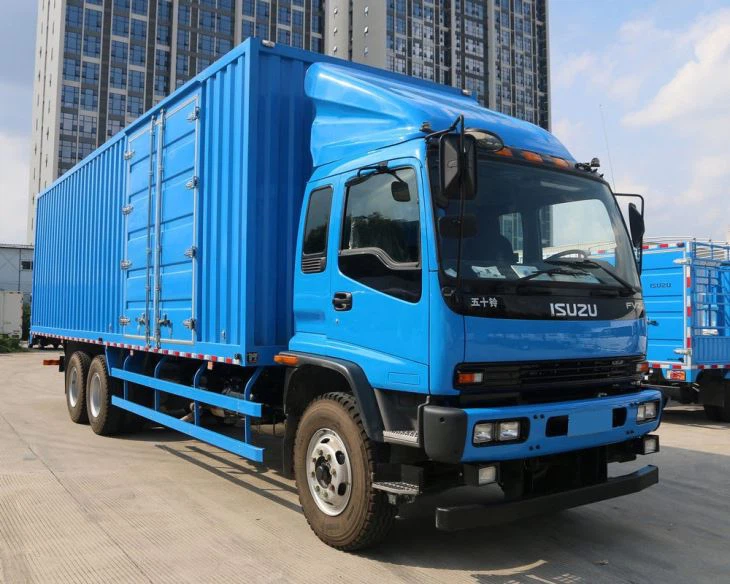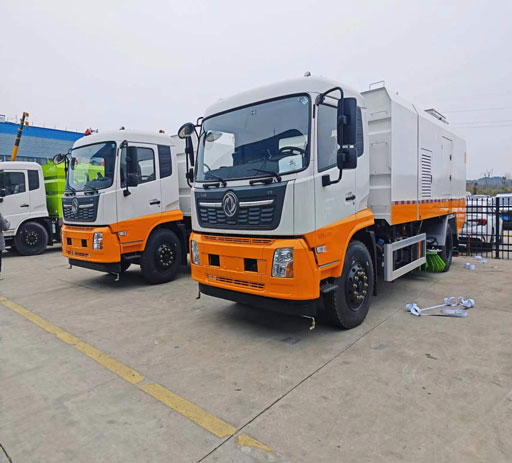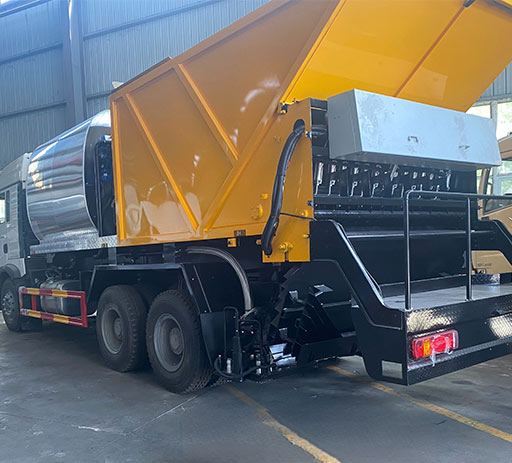Understanding the Dumpster Garbage Truck: A Comprehensive Guide

In today’s world, where waste management is crucial for the environment, the dumpster garbage truck plays an integral role. Whether for residential or commercial purposes, these trucks are designed to efficiently collect and transport waste, making them vital for maintaining cleanliness and hygiene in our communities. This article aims to provide an in-depth understanding of dumpster garbage trucks, exploring their design, types, operational mechanisms, maintenance, and significance in waste management.

What is a Dumpster Garbage Truck?
A dumpster garbage truck is a specialized vehicle equipped with the necessary apparatus to collect waste from dumpsters. These trucks are commonly seen in various settings, including residential neighborhoods, commercial areas, and industrial zones. They are designed to accommodate different types of waste containers, making them versatile and crucial in the waste disposal process.
The Importance of Dumpster Garbage Trucks
Dumpster garbage trucks help in maintaining public health and protecting the environment. Their key functions include:
- Efficient Waste Collection: They enable timely collection of waste, preventing overflow and littering.
- Environmental Protection: Proper waste disposal minimizes the risk of pollution and contamination.
- Supporting Recycling Efforts: Many garbage trucks are equipped to separate recyclables from general waste.
Types of Dumpster Garbage Trucks
There are several types of dumpster garbage trucks, each designed for specific waste collection needs. Understanding these types helps in selecting the right vehicle for the task.
1. Front-End Loader Trucks
Front-end loader trucks are characterized by their large, front-mounted arms capable of lifting and emptying dumpsters. These trucks are ideal for commercial waste collection, particularly from larger dumpsters.
Advantages of Front-End Loader Trucks
- High lifting capacity
- Efficiency in collecting large volumes of waste
- Ability to service multiple locations quickly
2. Rear-Loader Trucks
Rear-loader trucks have an opening at the back where waste is manually loaded or vacuumed by the driver. They are commonly used for residential waste collection and are known for their compact design.
Advantages of Rear-Loader Trucks
- Narrower design for easy navigation in tight spaces
- Lower operational costs
- Adaptability for various waste types
3. Side-Loader Trucks
Side-loader trucks are equipped with automated arms that allow for loading waste from the side, making them user-friendly and efficient, especially in residential zones.
Advantages of Side-Loader Trucks
- Reduced labor costs with automated collection
- Safe distance for operators while collecting waste
- Ideal for urban areas with narrow streets
How Dumpster Garbage Trucks Work
The operational mechanism of dumpster garbage trucks involves a series of steps designed for efficiency:
Step 1: Route Planning
Efficient route planning is crucial for minimizing fuel consumption and optimizing collection schedules. Modern GPS systems assist in planning the most efficient routes for garbage trucks.
Step 2: Waste Collection
Upon reaching a dumpster, the truck’s loading mechanism engages. In front-loaders, the arms lift the container, while in rear-loaders, waste is loaded manually or automatically.
Step 3: Compaction

After collection, the waste is compacted to maximize storage capacity. This reduces the frequency of trips to the landfill.
Step 4: Transportation
The truck then transports the waste to designated disposal sites, ensuring safe and environmental-friendly disposal practices are followed.
Maintaining a Dumpster Garbage Truck
Regular maintenance is essential for ensuring the efficiency and longevity of dumpster garbage trucks. Here are key maintenance practices:
1. Routine Inspections
Daily inspections should include checking fluid levels, brakes, tires, and loading mechanisms to identify potential issues early.
2. Lubrication
Keep all moving parts well-lubricated to prevent wear and tear, which can lead to costly repairs.
3. Engine Care
Regularly change oil and air filters to ensure optimal engine performance. Check the exhaust system for leaks or blockages.
4. Cleaning
Regular cleaning of the truck helps in maintaining hygiene, preventing odors and pests. It’s also essential for safety, as dirt can obscure controls and sensors.
Challenges Faced by Dumpster Garbage Trucks
Despite their critical role, dumpster garbage trucks face several challenges, including:
1. Increased Waste Generation
Urbanization and population growth lead to more waste, overwhelming existing waste management systems.
2. Regulatory Compliance
Trucks must comply with various health and environmental regulations, requiring upgrades and adjustments that can be costly.
3. Road Conditions
Poor road conditions can hinder the mobility of garbage trucks, leading to delays in waste collection.
Choosing the Right Dumpster Garbage Truck
Selecting the appropriate dumpster garbage truck is vital for efficient waste management. Here are factors to consider:
1. Type of Waste
Determine the type of waste being collected, as it will influence the design and hauling capacity needed.
2. Volume of Waste
Evaluate the amount of waste generated weekly or monthly to choose a truck with adequate capacity.

3. Operating Environment
Consider the geographical conditions and urban layout to select trucks suitable for those environments.
Table: Comparison of Dumpster Garbage Truck Types
| Truck Type | Loading Mechanism | Best Use | Capacity |
|---|---|---|---|
| Front-End Loader | Front arms | Commercial | Up to 40 yards |
| Rear-Loader | Back opening | Residential | Up to 30 yards |
| Side-Loader | Automated side arms | Residential, urban | Up to 25 yards |
Environmental Impact and Sustainability
The impact of dumpster garbage trucks on the environment is significant. Practicing sustainability in waste management can mitigate these effects:
1. Recycling Initiatives
Implementing recycling programs alongside garbage collection can reduce landfill waste significantly.
2. Use of Alternative Fuels
Considering alternative fuels such as electricity or biodiesel can decrease carbon emissions from garbage trucks.
3. Community Education
Educating the community about proper waste disposal and recycling practices fosters a culture of sustainability.
Future Trends in Dumpster Garbage Truck Technology
As technology evolves, the dumpster garbage truck industry is also adapting, leading to significant innovations:
1. Smart Trucks
Integration of advanced sensors and IoT technology allows real-time monitoring of waste levels, enhancing route efficiency.
2. Automated Systems
Automation in loading and route planning reduces the need for manual labor and enhances safety.
3. Eco-Friendly Designs
Manufacturers are increasingly focusing on designing trucks with minimal environmental impact, from materials used to fuel consumption.
FAQ Section
1. What is the typical lifespan of a dumpster garbage truck?
The typical lifespan of a dumpster garbage truck can range from 10 to 15 years, depending on usage and maintenance.
2. How often should dumpster garbage trucks be serviced?
It is recommended to service dumpster garbage trucks every 5,000 to 10,000 miles or based on the manufacturer’s guidelines.
3. Can dumpster garbage trucks collect recyclable materials?
Yes, many dumpster garbage trucks are equipped with separate compartments for collecting recyclable materials.
4. How do I choose the right size dumpster for my needs?
Assess your waste generation; smaller dumpsters (10-15 yards) suit home use, while larger (20-40 yards) are typically used for commercial purposes.
5. Are there any regulations for operating dumpster garbage trucks?
Yes, operators must comply with local, state, and federal regulations regarding emissions, safety standards, and waste disposal practices.
6. How can communities encourage recycling?
Communities can encourage recycling through educational programs, providing accessible recycling bins, and hosting recycling events.
